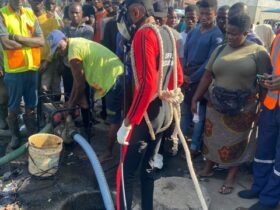Oil bearing communities in Bayelsa have bemoaned prolonged delays in the implementation of the host community fund component of the Petroleum Industry Act (PIA).
Representatives of the communities expressed dismay that since the PIA came into effect in 2021, no meaningful development projects had been carried out due to bureaucracy in setting up governance template for the funds.
The Bayelsa oil communities expressed their position in a statement issued on Sunday in Yenagoa.
It was jointly signed by Mr. Francis Amamogiran, Chairman of the Dodo River Rural Development Association, Mr. Christopher Tuduo, the youth leader and Chief Theophilus Moses, a community leader.
They noted that their peaceful disposition had ensured uninterrupted oil and gas exploration and production amidst the delays and warned against taking their stance for granted.
The statement urged the Nigerian Upstream Petroleum Regulatory Commission (NUPRC) to expedite its regulatory efforts aimed at ensuring full compliance by all oil companies with the three per cent operational expenses obligation.
The communities noted that given the opaque nature of the oil industry, the regulatory powers of a regulator was required and urged NUPRC to be a catalyst and not a cog in the wheel of progress.
They stated that the oil communities would be constrained to disrupt oil production across the state if the relevant agencies did not refrain from actions that could potentially reduce the three per cent host communities fund, or create bottlenecks under the PIA.
The communities expressed readiness to take decisive action and escalate their efforts to address the concerns of the oil and gas communities.
They explained that their proactive engagement in pacifying the youths across various communities since the signing of the Petroleum PIA had yielded the desired results
They stated that the stability of oil operations could be compromised if the situation is allowed to deteriorate further.
They warned that improper handling of host communities issues could have negative repercussions on Nigeria’s oil production and economy.
According to them, host communities are often excluded from the decision-making process, which results in the use of public resources to defend decisions in the media.
They noted that NUPRC’s regulatory oversight function was essential, over-involvement in the activities of host communities were counterproductive and financially burdensome. (NAN)











Leave a Reply